
Many of you may not know the name Amy Ray, but we’re sure you know the name of her band, The Indigo Girls.
It’s under that name that Ray – alongside Emily Saliers – began her nearly twenty-year long music career. Knowing all good musicians need to push their boundaries, Ray broke off in 2001 and began releasing solo projects. Now, a mere seven years later, the 44-year old celebrates the release of her fourth, Didn’t It Feel Kinder?
In addition to all her aural deeds, Ray’s made a name for herself on the activist scene, campaigning for native rights, environmental justice and, yes, gay rights. Taken together, Ray becomes far more than just one-half of a lesbian folk outfit.
After the jump, Ray discusses why she loathes the word “lesbian,” how identity politics come and go, and what it feels like to be the butt of a joke.
Oh, yeah, and she also sent over a new track, “Birds of a Feather,” which comes from her aforementioned fourth solo album. Dive in!
Andrew Belonsky: I want to know what keeps you going from 1989 to now – how do you not want to throw up your hands? What keeps you going?
Amy Ray: Well, I think it’s just what I enjoy doing. There are a lot of parts of it that are hard, but there it’s also a lot of fun. I’m a big music fan, too, so I think what keeps me going is hearing what other people play and seeing what they’re doing. I’m really inspired by that and finding a way to evolve and get better at what I do. You know fellow Indigo Girl Emily Saliers and I constantly play with new people and we try to broaden our horizons and when I do my solo stuff, it’s like a completely different world – working on an independent level. Things like that energize me, because they all work together and they all inform each other and create this ball of energy that keeps me going.
AB: How has your artistic perspective and your technique changed over the years?
AR: I think that one thing that’s changed a lot for me is my song-writing technique. In the early days, it was very haphazard and I sort of had this romanticized view that the muse would come. I think as a writer you have to have very serious discipline and a willingness to be brutal with yourself, edit and be critical of things. For me, I don’t get burdened by that discipline. It sets me free and write with a whole lot in confidence and then craft that material. I think vocally I’ve changed a lot over the years, too. That took a lot of discipline, as well. I started really working with vocal exercises and trying to work on my voice and get more range and learn how to sing in different ways, in different tones. All of that technical stuff has over time changed and improved me. It’s given me more access to my instrument.
AB: Aside from technology, has the music industry changed?
AR: Aside from technology, I don’t think it has. Attitude wise, there are still what I call “the gate keepers” – I mean in the mainstream media and radio, what you would consider to be traditional models of media. Those gatekeepers are still very narrow and homogenized and don’t really understand how to think outside the box and give access to the public to more diversity. I don’t think that’s changed, but I do think the public has changed a lot. They don’t care as much about your sexuality or gender. They just want to hear a good song.
AB: And you have contributed to that – would you agree?
AR: I don’t know if I agree, but I’m glad about it.
AB: The Indigo Girls are often seen as stereotypical lesbians singing, being folky – the 90s image of lesbians that was put forth pre-The L Word, while I think the image of lesbians now is much more glam.
AR: Yes. Or vapid.
[Perhaps The Indigo Girls’ most well-known track, “Closer To Fine.”]
AB: How do you feel that, in some circles, the Indigo Girls being seen as a punch line?
AR: We’re definitely aware of that. We’d have to be idiots not to. I think, for me, when Indigo Girls become a punch line, that’s just incredible homophobia, especially when it comes from our own community. For me, I don’t take it on a personal level. I take it on a political level. This is not how you build allies. But, when it’s done in a subversive way – South Park has done stuff on us before that was pretty clever – but there are other times when I just think, “That’s the lowest common denominator.” As for “lesbian” – that word and just the idea of what a lesbian is, is so derided. It’s a derogatory word, even in the gay women’s community. It’s a generational thing in some ways. It’s a balance, you know? I define myself as queer more than lesbian because of my gender duality. I think that some people don’t define themselves as lesbians purely because it’s a derogatory term.
AB: When you say that you view “lesbian” as a derogatory word, is that because it’s so clinical, like homosexual?
AR: “Lesbian” became this sort of identifiable mark. Indigo Girls is a great association with that – a certain kind of gay woman who has all of these stereotypical things about her – they way that they dressed and the things that they do and bringing with them this type of person and sort of in a way that’s not flattering: a lack of style, a sort of way of socializing – I can’t even put my finger on all of the descriptions.
AB: Even if people are going to read “lesbian” or “Indigo Girl” one way, you guys did in many ways help build visibility for lesbians. Even if there is negative attached to it, ultimately that negative has worked for good.
AR: I totally agree. I’m just talking about the punch line aspect. I wouldn’t trade my career for anything. We’re just part of a greater group of people who helped move in that direction and open the door wider, as was done with us. So, I’m happy about it. I don’t dwell on the punch line aspect of it at all. I’m so used to it and it’s kind of one of those things where the positive stuff is so great and our career has been so great and people are into it. It’s just a great way to make a living, too. I just feel lucky.
AB: You used the word “vapid” earlier while discussing the “new lesbian” – and we were talking about the Indigo Girls being lesbians and political. That made me think of the decline of identity politics. I think that a lot of people my age – I’m 26-years old – including myself… I don’t know if I always consider the fact that I’m gay to be a political thing. Do you consider your lesbian identity to be a political thing?
AR: Um – sometimes. And yours is political sometimes, too, whether you know it or not. If you go hang out in another country where homosexuality’s illegal, you’re definitely political. It depends on what world you’re moving in – your gayness can be very political. People have to realize that their privilege might have something to do with where you are and all that stuff. I don’t know – sometimes I think that being gay is a political thing and sometimes it’s not. I don’t even think about it.

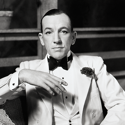
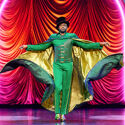



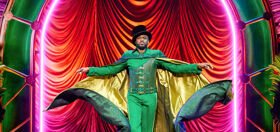





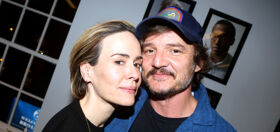
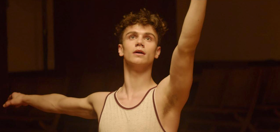
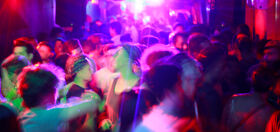
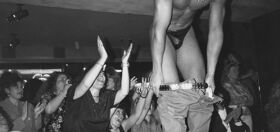

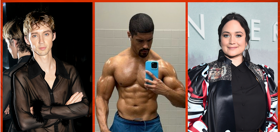
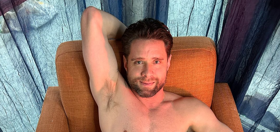
Darth Paul
She kinda looks like Ashley Simpson, pre-knife.
Kid A
Thanks for this interview!
Haviland Stillwell
Thank you for this! Love for the Indigo Girls!